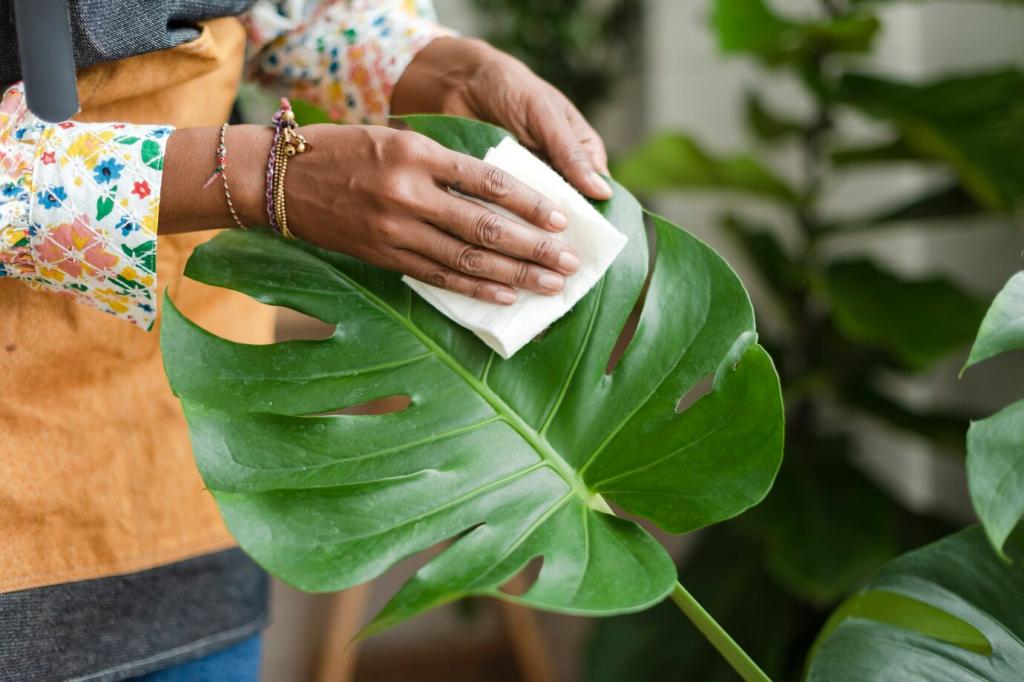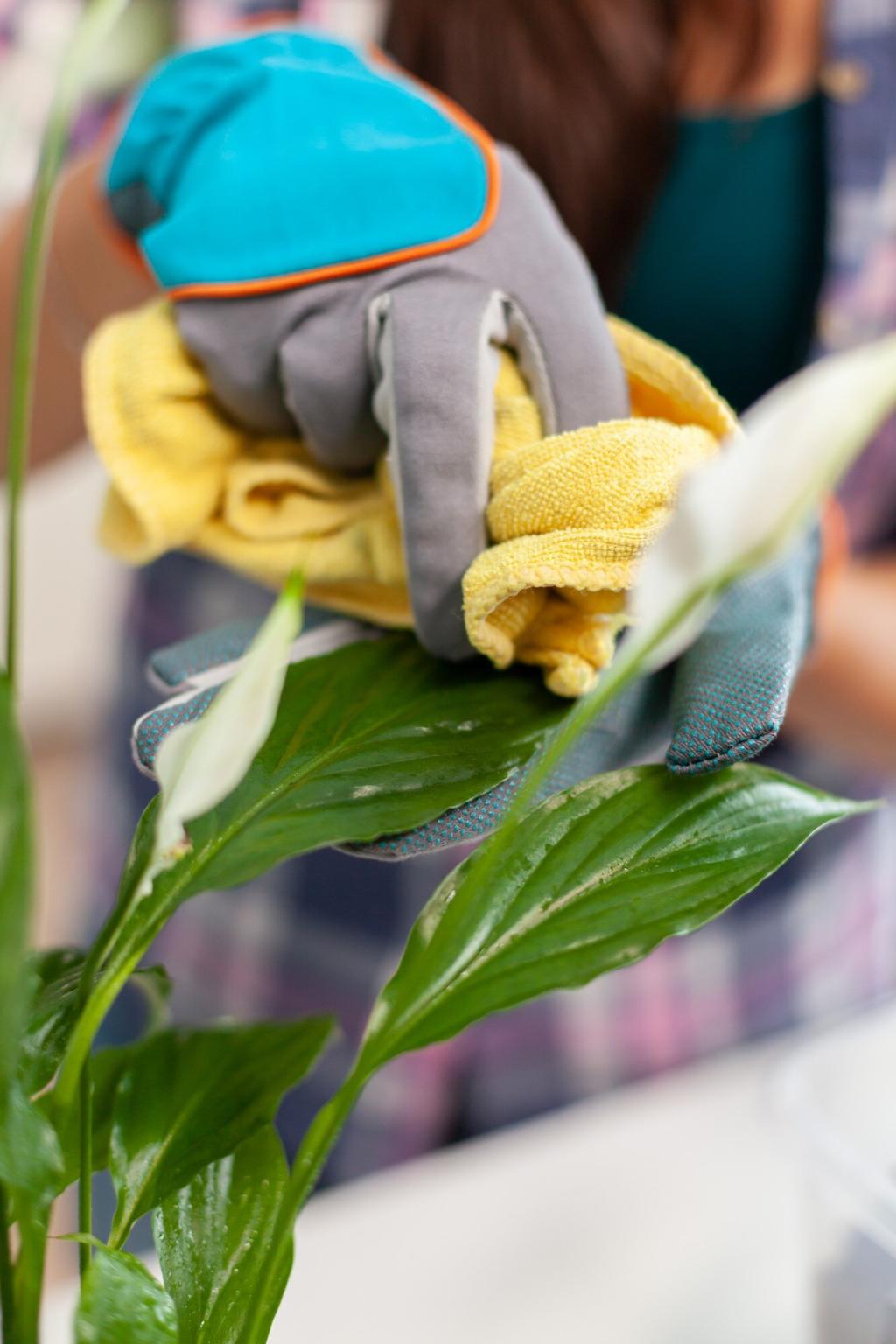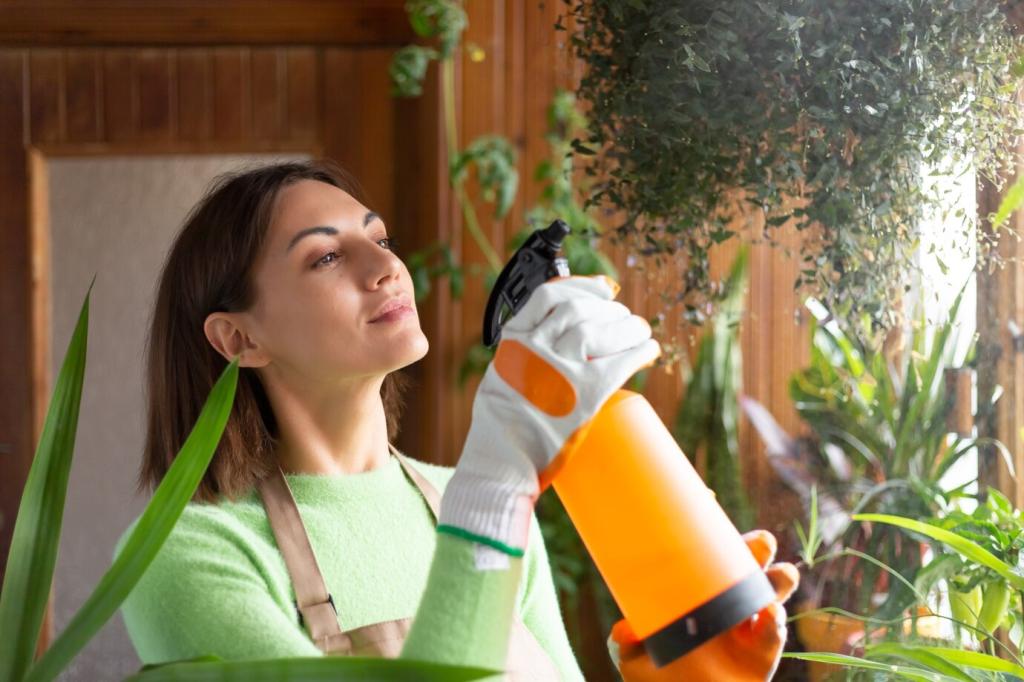Everyday Recipes That Actually Work
In a 16-ounce bottle, combine 1 cup distilled water, 1 cup white vinegar, 12 drops lemon, 6 drops sweet orange, and 4 drops peppermint. Shake before use. It cuts light grease and leaves a bright finish. Tell us where it shines most in your home.
Everyday Recipes That Actually Work
Mix 1 cup distilled water, 1 cup isopropyl alcohol (at least 70%), and 6 drops lavender or eucalyptus. Spray lightly and wipe with a lint-free cloth. It dries fast and smells spa-fresh. Comment if you prefer a floral or forest vibe.




